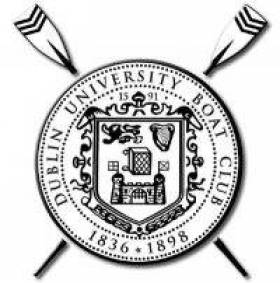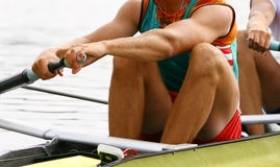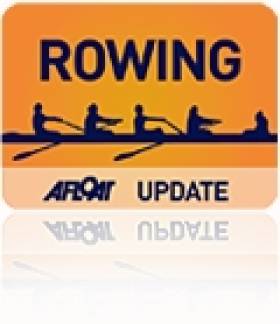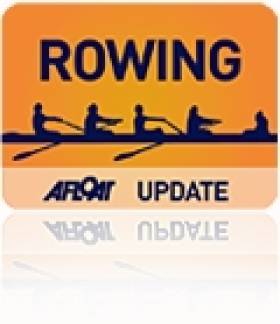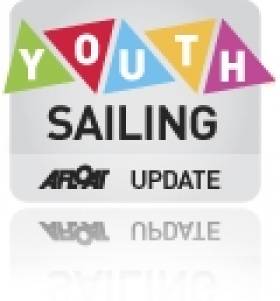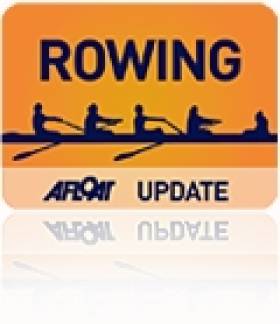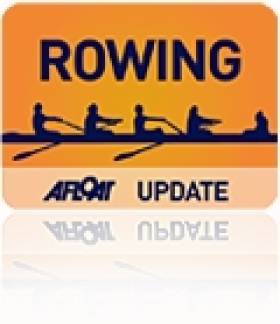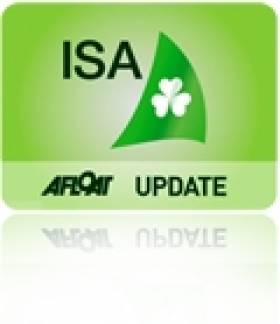Displaying items by tag: University
Skibbereen Sunday in Doubt on Bumper Weekend for Irish Rowers
#Rowing: This weekend is one of the busiest of the year for Irish rowers. At the National Rowing Centre in Cork the University Championships of Ireland will be held on Friday, April 13th, and Skibbereen Grand League Regatta is scheduled for Saturday and Sunday, April 14th and 15th. This event has its biggest-ever entry, but a very bad weather forecast for the Sunday has put competition on that day in doubt. Three Ireland women’s crews will also compete in an international regatta in Italy, the Memorial Paolo d’Aloja in Piediluco.
World champions Mark O’Donovan and Shane O’Driscoll and Olympic medallists Paul O’Donovan and Gary O’Donovan arrived home earlier this week after three months training and competition in New Zealand and Australia. The four Skibbereen men intend to compete in their home club’s regatta.
On Friday, over 140 crews from 10 different universities and colleges around the country will compete in the University Championships. The event is set to start at 9:30 am with a straight final of the senior men’s fours and races will run throughout the day. The final contest, the men’s senior eights is scheduled for 4:20 pm.
In Italy, two-time Olympian Sanita Puspure will compete in the heavyweight women’s single sculls in Piediluco. Aileen Crowley and Monika Dukarska will race in a double scull, while Emily Hegarty and Aifric Keogh are set to compete in a pair.
#Rowing: Trinity emerged as the top college at the University Championships of Ireland at the National Rowing Centre today. The combined points total of women’s and men’s crews was 66, ten more than Queen’s University and 14 ahead of UCD. The Wylie Cup was won by NUIG by virtue of their wins in the men’s intermediate and club eights, while Trinity won the Bank of Ireland Cup for women. The men’s senior eights final again saw Trinity beaten by UCD, by half a length. The verdict in the women’s senior eight was the same – but the result was reversed.
University Rowing Championships, National Rowing Centre, Cork, Friday (Selected Results)
Overall: 1 Trinity (DUBC and DULBC combined) 66 points, 2 Queen’s University 56pts, 3 UCD 52pts. Wylie Cup (men): NUIG. Bank of Ireland Cup (women): Trinity.
Men
Eight – Senior: 1 UCD, 2 Trinity, 3 NUIG; ½ l, 3l. Inter: NUIG. Club: NUIG. Novice: Trinity A 2½ l.
Four, Sen: 1 UCC, 2 Trinity; canvas. Inter: NUIG. Club, coxed: UCC.
Pair – Sen: 1 UCD, 2 NUIG, 3 Trinity A; 6l, 6l.
Sculling, Quadruple – Novice, coxed: Queen’s. Double – Inter: Queen’s. Single – Senior: 1 Queen’s (P Doyle), 2 Belfast Met (S McKeown), 3 Queen’s (C Beck); 2 ½ l, ½ l. Inter: Cork IT (Hennessy).
Women
Eight –Senior: 1 Trinity A, 2 UCD, 3 Trinity B; ½ l, dist. Inter: Trinity. Club: Queen’s. Novice: UCD.
Four – Sen: 1 Trinity A, 2 UCD, 3 Trinity; ¾ l, dist. Inter, coxed: Queen’s. Club, coxed: Trinity A.
Pair – Sen: Trinity.
Sculling, Quadruple – Novice, coxed: Dublin IT A.
Double – Inter: Trinity A.
Single – Senior: IT Tralee (M Dukarska). Inter: UCC (Bouanane).
Irish University Championships Will Go Ahead
#Rowing: The University Championships of Ireland at the National Rowing Centre tomorrow, Friday, are set to go ahead. The organisers may alter the schedule to concentrate on the bigger boats, depending on the weather on the day. There has been strong interest in the event, with 140 entries made.
Trinity Tested in Belfast Boat Races
#ROWING: Trinity won the senior men’s and women’s races at the Lagan Construction University Boat Races in Belfast today. Queen’s closed fast on Trinity coming up to the line in the men’s race and lost by a narrow margin. The senior women’s race was a more decisive win for the visitors, who had a strong senior crew. There was a strong headwind for the 11th annual running of the event.
Lagan Construction University Boat Races, Belfast
Men
Senior: Trinity bt Queen’s, canvas
Fresher: Queen’s bt Trinity
Junior 18, Ulster Schools: Portora bt Bann.
Junior 16 (Craig Cup): Portora bt Methodist College
Alumni: Queen’s bt Trinity, 1 ft
Women
Senior: Trinity bt Queen’s
Fresher: Trinity bt Queen’s, disq
Junior 18 (Bobby Platt Cup); Bann bt Portora
Trinity Tops at Irish University Rowing Championships
#ROWING – Trinity took the overall title and the Wylie Cup for men and the Bank of Ireland trophy for women at the Irish University Championships at the National Rowing Centre in Cork today. The Wylie and Bank of Ireland trophies are decided on the results of senior, intermediate and novice eights – and in both men and women, there were different winners for the three grades. The results from second and third places gave Trinity the decisive edge. While Trinity were comprehensive winners over NUIG in the senior men's grade, UCD were similarly impressive in the winning the women's senior eight.
Irish University Rowing Championships, National Rowing Centre, Cork (Selected Results)
Men
Eight: 1 Trinity, 2 NUIG, 3 UCC; 2l, 1l. Intermediate: 1 UCD, 2 UCC, 3 Trinity; 3l, 1l. Club: 1 Trinity, 2 NUIG, 3 Queen's; bowball, 1l. Novice: 1 Queen's A, 2 Trinity A, 3 UCD; 2l, 1l.
Four – Sen: 1 UCC, 2 NUIG, 3 Trinity; canvas, 1l. Inter, coxed: 1 UCD, 2 Trinity, 3 UCC; 5l, 2l. Club, coxed: 1 Trinity, 2 UCC, 3 Dublin IT; 1 ½ l, 1l.
Pair – Senior: 1 UCD, 2 Trinity; 2½ l.
Sculling
Quadruple – Novice, coxed: 1 Dublin IT A, 2 Trinity, 3 NUIG; 3l, 3l.
Double – Intermediate: 1 Cork IT, 2 UCD, 3 Dublin IT; 5l, easily.
Single – Senior: 1 Queen's (C Beck), 2 Trinity (I Hurley). Inter: 1 UCD (A Griffin), 2 UCD (S Toland), 3 Cork IT (M Ryan); 2½ l, distance.
Women
Eight: 1 UCD, 2 Trinity A, 3 UCC; 1½ l, easily. Inter: 1 Trinity, 2 NUIG, 3 Queen's; 1l, distance. Club: 1 Trinity A, 2 Queen's, 3 UCD. Novice: 1 Queen's, 2 Trinity, 3 UCD.
Four – Senior: 1 Trinity, 2 UCC; distance. Club, coxed: 1 Trinity A, 2 NUIG, 3 Trinity B; ½ l, 2l.
Pair – Senior: 1 Trinity, 2 UCC B, 3 UCC A.
Sculling
Quadruple
Novice, coxed: 1 UCC, 2 NUIG, 3 Dublin IT; 5l, 1½ l.
Double – Inter: 1 Trinity, 2 Queen's; 2½ l
Single – Inter: 1 UCC (S Horgan), 2 UCD (O Finnegan), 3 DCU (S Dineen); 5l, 2l.
Student Sailing Worlds Selection Trials Conclude
#sywoc – There are two distinct strands in Irish university sailing these days. The annual National Team Racing Opens in Fireflies – won five weeks ago on Tralee Bay from 26 college teams by University of Limerick skippered by Ross Murray – continues to be the backbone of the national students' programme. This is as it should be. Team racing is a natural fit in college life, but it's equally natural that afterwards, most folk grow out of it.
However, with the success in recent years by the Irish colleges in the Student Yachting Worlds in France in the last week of October, this major international championship with one keelboat apiece has zoomed to the top of the agenda. With the availability of the SailFleet flotilla of J/80s, the top Irish college sailing clubs are able to have a proper selection series with fleet racing which emulates the championship itself, especially this year as J/80s will also be the boat used in France in six months time.
On top of that, University College Dublin are current world champions, and they have a place at the worlds as of right. So there has been a second team place in France up for grabs in a three day selection series spread over three weekends, concluding today in Howth where the J/80s are based this Spring.
The Student Worlds is a massive season-long commitment for a transient membership college sailing club to make, but they mustered seven teams at mid-series with UCD:Simon Doran; TCD:Scott Flanigan; UL: Rob O'Leary; DIT: Nessa Coady; CIT: Donough Good. Seventh team DCU, skippered by Ryan Scott, had already committed to a team racing series in France on the first weekend when this three-Saturday schedule for April was announced, so they've been allowed to compete the latter two weekends with average points allowed for their no-show first day in a series which will have no discards.
However, University of Limerick continue on a roll, and their helmsman Rob O'Leary only has to make sure he doesn't record a last place in either of today's two races to ensure that UL will be providing a two-pronged attack for Ireland along with UCD at the big one in France in October.
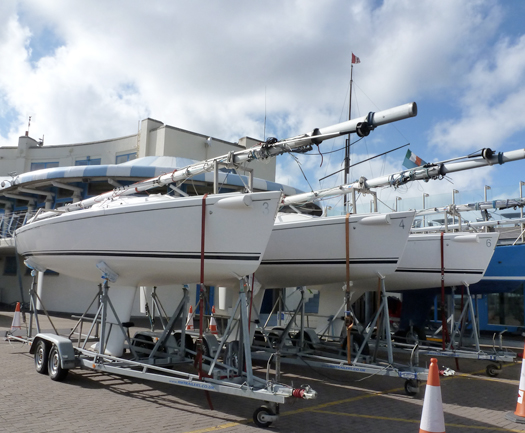
The People's Boats – the ISA SailFleet J/80s are a matter of quiet pride for the sailing community, successfully fulfilling their important role at key sailing centres Photos: W M Nixon
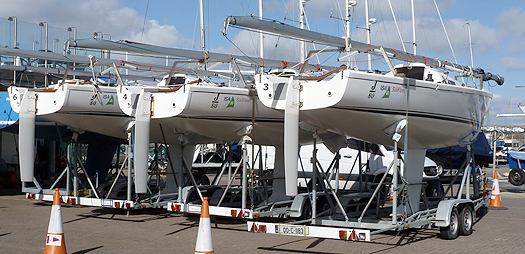
Tomorrow, the J/80s are back in action with the ICRA training day, and it's good to see them doing what they're intended for. The SailFleet concept is achieving exactly what everyone hoped, and we can be proud of them – they're The People's Boats. That said, we may need to organise some sort of fund-raising do - a gala dinner might fit the bill – to put right a problem with ISA SailFleet J/80 No 4. At least two bolts in the upper rudder gudgeon on the transom are producing an unsightly stain. Of course it can't be rust. It just can't be rust. It must be a stain of some sort. But nevertheless, a focused fund-raising drive may be necessary to raise the resources to replace those bolts with fastenings in proper naval grade SS 316. It's the least we can do for The People's Boats.
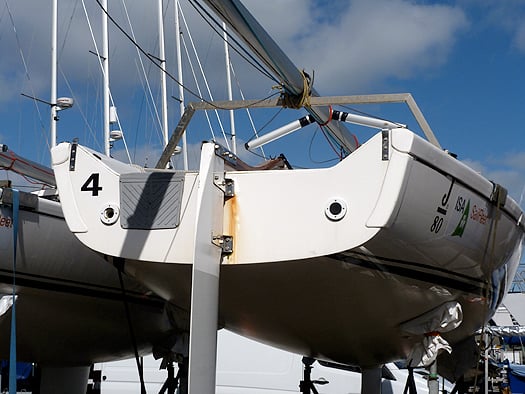
It just couldn't be rust....but this stain needs some SS 316. Photo: W M Nixon
UCD Set Sail for Student World Yachting Cup
#studentyachting – UCD will represent Ireland at the 2012 Student Yachting World Cup in La Rochelle, France from the 27th of October to the 3rd of November. Scroll down for the names of the ten member team.
The UCD students earned the right to represent Ireland having won the Irish Student Yachting National Championships in Dun Laoghaire in March. Cork Institute of Technology previously won the world student trophy in 2008 under skipper Nicholas O'Leary.
The highly experienced team will not just be representing UCD but all corners of the island of Ireland. The 10 sailors hail from all over the country including Antrim, Cork, Down, Mayo, Sligo, Wexford and Waterford and between them share a wealth of skills and knowledge.
The team's skipper Aidan McLaverty competed at the event last year when he and the team from Cork Institute of Technology took home the bronze. The Health and Performance graduate also trained previously with London Olympian Annalise Murphy and has won silver and bronze at world championships. The tactician for the team, Barry McCartin holds nine Irish National Sailing Championship titles across six different classes and has also competed internationally on the Olympic 470 class circuit.
The annual regatta in France attracts the top student sailors from around the world including Australia, Canada, Japan, the UK and the USA.
Team Captain Cathal Leigh Doyle, a UCD Business and Law graduate and Bowman David Fitzgerald have won numerous Irish national titles between them whilst medical students Simon Doran and Theo Murphy spent years competing in the Laser Radial class at international level. Ben Fusco has 9,000 miles of offshore experience and in 2009 won the Dun Laoghaire to Dingle Race with a record setting time. He also skippered the youngest team ever to sail around Ireland non-stop in 2010. The three girls on the team also have both national and international experience in spades. Isabella Morehead and Alyson Rumball both began sailing in Optimists from a very young age and quickly progressed to international regattas in Optimists, Fevas, 420s and 29ers. While Ellen Cahill has spent the past 18 months in California studying Biomedical Engineering at the University of California San Diego where she partook in both Team Racing and yacht racing,
This incredibly talented team know that experience isn't enough, they must train as much as possible over the next six week if they are to effectively challenge the reigning champions from Euromed Arthur Loyd in France. Utilising the UCD High Performance Gym, the team will be working on their strength and conditioning a minimum of two days per week with the gym's trainers. They will also spend every weekend, and evenings during the week on an ad hoc basis, on board their training yacht 'Adrenaline'.
Under the instruction of coaches Nicholas O'Leary, brother of Olympian Peter O'Leary and past Student Yachting World Cup competitors John Downey and Marty O'Leary, the team hope to ensure their best chances of bringing home the gold to Ireland, something which has not been repeated since 2008.
UCD Sailing Team
· Aidan McLaverty (Skipper) – from Belgooly, Co. Cork
· Barry McCartin (Tactician) – from Cushendun, Co. Antrim
· Cathal Leigh Doyle (Headsail Trim) – from Ballincar, Co. Sligo
· Isabella Morehead (Headsail Trim) – from Rochestown, Co. Cork
· Simon Doran (Mainsail Trim) – from Gorey, Co. Wexford
· Alyson Rumball (Pit) - Greystones, Co. Wicklow
· Theo Murphy (Mastman) – from Belfast, Co. Down
· David Fitzgerald (Bowman) – from Westport, Co. Mayo
· Ben Fusco (Shore Team) – from Kinsale, Co. Cork
· Ellen Cahill (Shore Team) – from Westport, Co. Mayo
Last of National Rowing Heads takes place in Belfast Today
There are 148 crews over the three races starting with pairs and sculls, then doubles and fours and finishing in the afternoon with eights and quads. The third race features 35 eights and 26 quads.
The big race of the day, the men's senior eights, which starts at 3.45 pm, will feature a high intensity race between the two Queen's University eights. The A Queen's crew, with new strokeman, Mike Ewing, have been relatively the same crew for the last three years. This is the crew which mounted serious challenges to the victorious NUIG team at the Irish Rowing Championships, narrowly missing out on a national senior eight by a mere few feet on two occasions. The A team's Ewing won a Wyfold cup (men's coxless four) at Henley last year.
The women's intermediate eights should prove interesting with a crew entered from St Andrews in Scotland who will be up against Queen's University Ladies and St Michael's, Limerick.
The men's junior 16 eights sees all the Ulster crews up against each other whilst the men's junior 18 quads sees Blackrock College, Dublin, Shandon ,Limerick and Offaly Rowing Club take on the Ulster schools.
Eight crews will contest the men's Master's pennant (over 28s) with Galway, Bann and Athlone pushing the Belfast-based masters crews, Belfast Boat Club, Belfast Rowing Club and the Lady Victoria Boat Club, all the way. The former Queen's ladies rower ,Frenchwoman Solange Garrais is bringing a men's Masters and a women's Masters quad from Aviron Grenoblois, France to compete.
The 10.45 am and 13.15 pm races start at the Albert Bridge in Belfast and finish at Queen's boathouse at Stranmillis. The 15.45 pm race starts at the Odyssey building in Belfast Harbour and finishes at Queen's boathouse at Stranmillis. There are viewing points along the full length of each race.
The official start to the regatta season takes place on Saturday 2nd April with the Neptune regatta at Islandbridge, Dublin.
Click this link for Irish Rowing detailsClick this link for the Latest Rowing News
Queen's and Portora Impress at Erne Head
Two men’s senior eights from Queen's University slotted into the first two slots at the Erne Rowing Head of the River at Enniskillen. The junior 18 quadruple of the host club, Portora, had a fine result, finishing joint eighth overall.
Erne Head of the River, Enniskillen
Overall: 1 Queen’s A men’s senior eight 19 minutes 53 seconds, 2 Queen’s B men’s senior eight 20:21, 3 University of Limerick/St Michael’s men’s senior eight 20:40, 4 Trinity men’s intermediate eight 20:59, 5 Bann men’s junior 18 eight 21:09, 6 Methodist College, Belfast men’s junior 18 eight 21:47.
Men, Eight – Senior: 1 Queen’s A 19:53, 2 Queen’s B 20:21, 3 University of Limerick/St Michael’s 20:40. Intermediate: Trinity 20:59. Novice: 1 Trinity 21:47, 2 Queen’s 22:38, 3 Queen’s B 24:51. Junior 18: 1 Bann 21:09, 2 Methody 21:47, 3 St Joseph’s 22:02. Junior 16: St Joseph’s 23:50. Masters: Belfast BC (E) 24:06.
Four/Quadruple Sculls – Senior: 1 Belfast RC (quadruple) 23:01, 2 LSC (quad) 24:45. Intermediate: 1 Trinity (quad) 22:17, 2 Queen’s (coxed four) 23:39, 3 University of Limerick (quad) 23:59. Junior 18: 1 Portora (quadruple) 22:02, 2 Commercial (quad) 22:51, 3 Portora (coxed four) 22:56. Junior 16: Bann (quad, coxed) 24:05.
Women, Eight – Senior: 1 Trinity 23:42, 2 NUIG 23:51. Intermediate: 1 Queen’s 23:45, 2 Trinity 26:02, 3 Methody 26:16. Novice: 1 Queen’s 25:07, 2 Trinity A 26:29, 3 Trinity B 26:40. Junior 18: 1 St Michael’s 24:41, 2 Portora A 27:24. Masters: Belfast BC (D) 25:39
Four/Quadruple – Senior: 1 Portora (quadruple) 24:32, 2 Trinity (coxed four) 27:28, 3 Garda 28:11.
Click this link for Irish Rowing detailsClick this link for the Latest Rowing News
Sailing Body Elects First Female President
In one of her last official functions as Minister for Sport, outgoing local TD Mary Hanafin attended the Irish Sailing Association's annual Ball last Saturday in the Royal Marine Hotel in Dun Laoghaire.
Attended by 315 people the black tie ball featured an awards ceremony that has been hailed 'a great success' by the association.
On Saturday afternoon the association elected a new President, Niamh McCutcheon, the first female ISA President since the organisation was founded in 1945.
A collection in aid of the RNLI raised over €2,250.
Award details below:
ISA Sailing Achievement of the Year
This award is presented by the ISA to recognise the outstanding achievement in a sailing craft by an Irish person or in Ireland during 2010.
Winner: Nicholas 'Nin' O'Leary, Royal Cork Yacht Club
Nicholas' achievements included narrowly beating his father Anthony at the ISA All Ireland Championships in 2010 by just a single point after a nail-biting finale in difficult conditions off Kinsale in November. The win made it three-in-a-row for this remarkable young 24 year old sailor - the only person to achieve this in the 64 years of the event's history.
ISA Volunteer of the Year
This award is given to a member of an ISA affiliated club or class who has made a significant voluntary contribution to their sport during 2010.
Winner: Brian Craig, Royal St. George Yacht Club.
Brian has been nominated by the Royal St. George Yacht Club for the vital role he has played in developing sailing in Ireland and specifically Dun Laoghaire over the past 40 years. His most recent success was winning the bid for Dun Laoghaire to host the 2012 ISAF Youth Worlds.
ISA Youth Sailor of the Year
This award is presented by the ISA to recognise the outstanding achievement by a sailor competing in ISA Performance Pathway boats during 2010.
Winner: Finn Lynch, Blessington Sailing Club
Placing 2nd overall at the Topper World Championships in 2010 left the Carlow sailor in good stead for a Youth Sailor nomination. A determined sailor and strong character, it's clear that with these strengths Finn has the potential to go far in our sport.
ISA Instructor of the Year
This award recognises the role instructors have in providing access to our sports. The final 5 have been nominated by their students with the ultimate winner selected by an ISA judging panel.
Winner: Aine Carroll, Rush Sailing Club
Aine has been an ISA instructor for the last 11 years, instructing both adult and junior sailors in Rush Sailing Club. A keen Mermaid sailor, her love of sailing, her enthusiasm for the sport and willingness to give her time to her sailors have been infectious and remarkable. Apparently the kids at the club think she is a 'legend' and 'cool'!
ISA Training Centre of the Year
The face of ISA water sports to thousands of participants. The best in 2010 as nominated by their students.
Winner: University of Limerick Activity Centre
Situated on the sheltered shores of Lough Derg, University of Limerick Activity Centre has been in operation for over a decade. ULAC provides a varied programme of adventure activities to the general public. The University of Limerick Activity Centre runs ISA courses in sailing dinghies, windsurfers, powerboat as well as emergency care training courses.



























